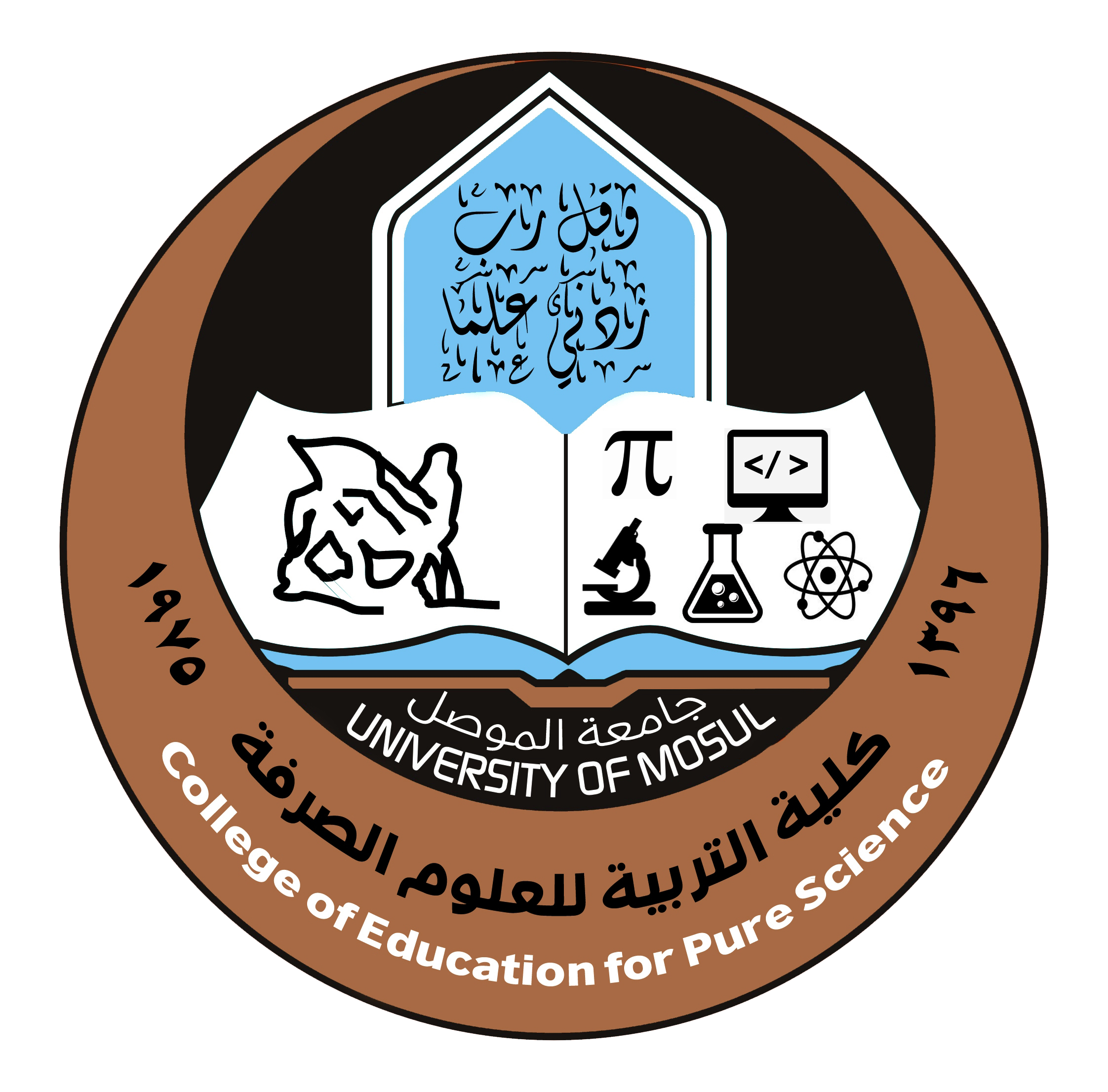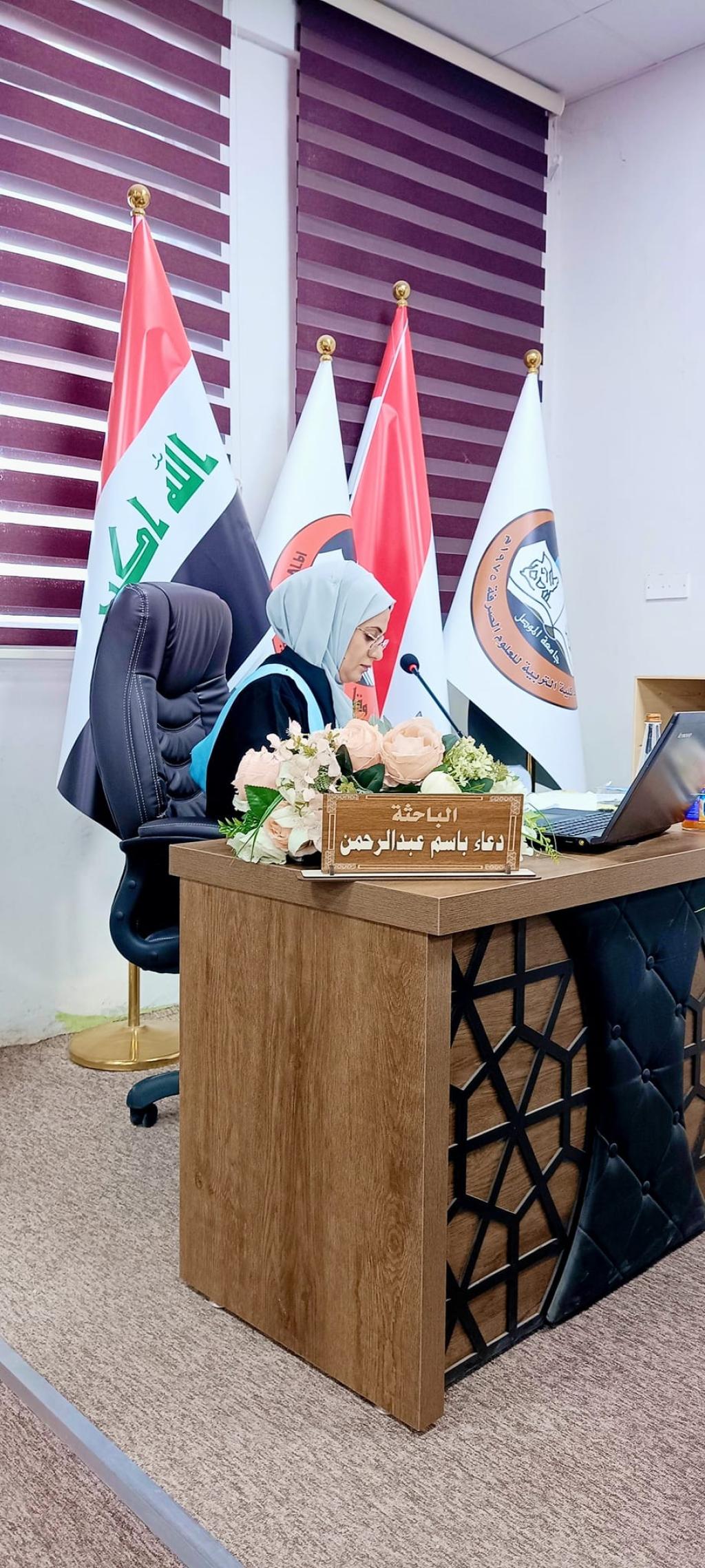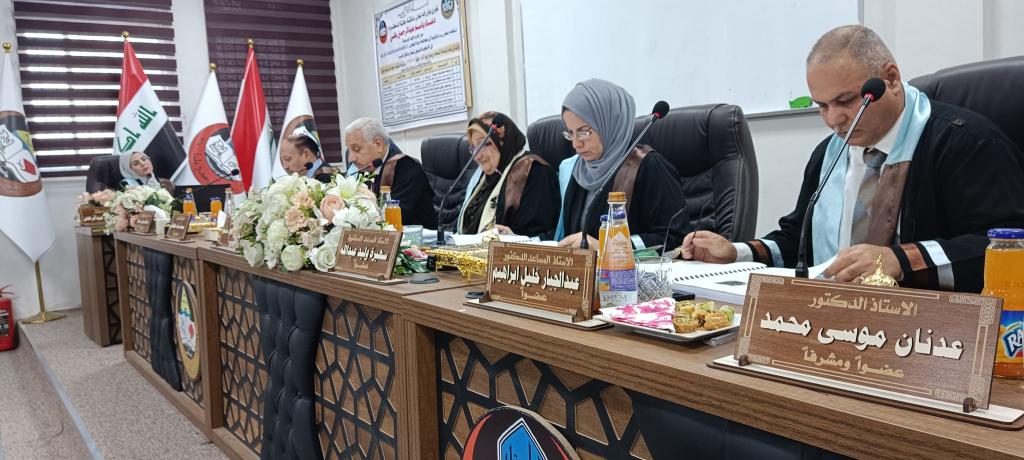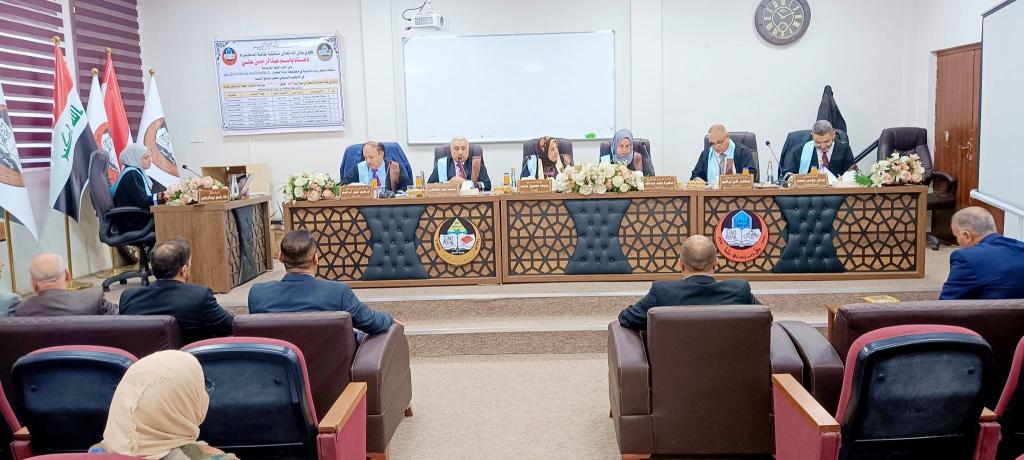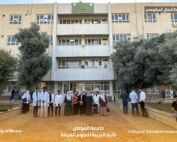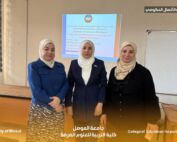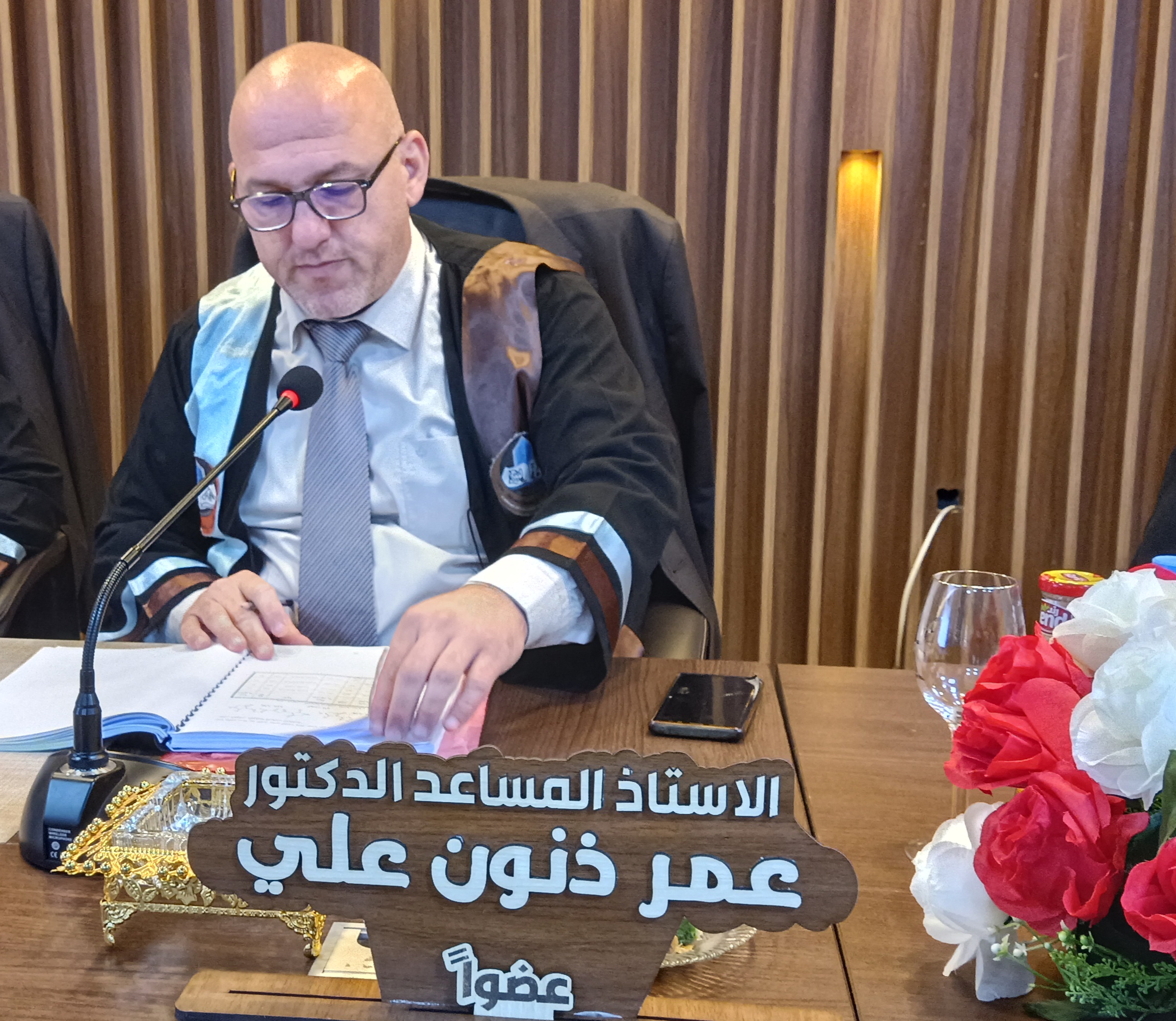13 November، 2022
PH.D. Dissertation Viva-Bioilogy Department
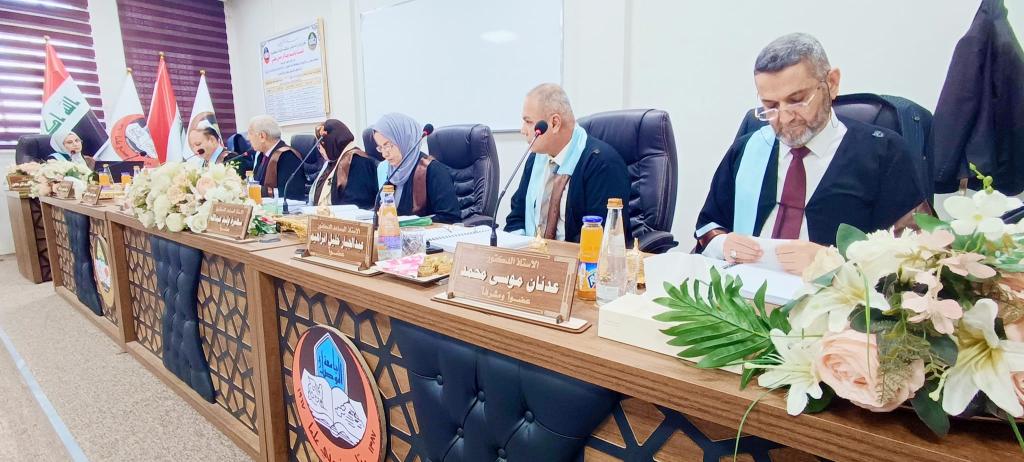
PH.D. Dissertation Viva in the College of Education for Pure Science entitled ” The use of some Nanomaterials in the Fight Against the major worm Galleria mellonella L. And its Effect on the Histological Structure of some Areas of the Body “The College of Education for Pure Science, University of Mosul, has done the PH.D. Dissertation Viva entitled ” The use of some Nanomaterials in the Fight Against the major worm Galleria mellonella L. And its Effect on the Histological Structure of some Areas of the Body “,On Sunday, November 13, 2022, the respected Dean of the College, Assistant Professor Dr. Qais Ismail Ibrahim, the Honorable Scientific Associate and Administrative Associate, the Honorable Head of the Department of Biology, and a number of the college’s teachers were attended the viva. The aim of this study, presented by the PH.D. Student Doaa Basim Abdul Rahman Ali in the Department of Biology, was conducted to find out the effect of nanomaterials of zinc oxide nanoparticles (ZnONPs) and titanium dioxide (TiO2NPs) at concentrations 100, 500, 1000 and 5000 ppm for both, as well as using spores of the bacteria Bacillus thuringiensis at concentrations 106, 107,108 and 109cells. / ml, to know the effectiveness of the above materials in affecting the vitality and control of the insect Galleria mellonella L., which attacks the waxy bases of honey bees Apis mellifera . The previous treatment also caused a significant death rate in the larval and pupal stages, which reached 78.70 and 64.88%, respectively, in the treatment of nano-zinc oxide at a concentration of 5000 ppm, The treatment of B. thuringiensis spores at a concentration of 106 cells/ml caused a death rate of 82.100 and 100. 00% for both stages.In this study, the larval stage was treated with nanomaterials and spores of the bacteria B. thuringiensis. The treatment caused a significant prolongation in the duration of the two instars, and a significant increase in the percentage of killing in the two instars.In this experiment, the effect of larval treatment on the vitality of the females of the first generation was studied. In this study, the pupae were also treated with nanomaterials and spores of the bacteria B. thuringiensis, and this treatment had a clear effect on its vitality, as most of the treatments resulted in a significant death of the pupae that reached 100% in the nano zinc oxide treatment at a concentration of 100 ppm, while it decreased Significantly to 38.86% in the B. thuringiensis spores treatment with a concentration of 109, and both treatments were significantly different from the control treatment by 5.28%, and these treatments (the pupae treatment) caused a significant reduction in the number of emerging insects. The previous treatment also affected the percentage of death for the larval and pupae stages, which reached the highest percentage of 55.92 and 32.33%, respectively, in the treatment of titanium dioxide concentration of 5000 ppm The treatment also caused a significant reduction in the number of emerging insects, which amounted to 30.66 insects. In this study, the attractive and repellent effect of nanomaterials and spores of the bacteria B. thuringiensis used was also known, and it appeared that they had a clear effect, as the titanium dioxide treatment gave a concentration of 100 ppm, an expulsion rate of 70%, and an equilibration rate that reached(-44.7).The Viva committee was chaired by Prof Dr. Badia’a Mahmod Selim / University of Zakho /College of Science and the membership of Prof Dr. Munif Abd Mustafa / University of Mosul / College of Science, Assist Prof Dr. Abdel Jabbar Khalil Ibrahim / University of Mosul / College of Agriculture & Forestry ., Assist Prof Dr. Ibrahim Khalil Ibrahim / University of Mosul / College of Education for Pure Science, Assist Prof Dr. Sohaira Waleed Abdullah /Salahaddin University-Erbil / College of Basic Education and under the supervision and membership of Prof Dr. Adnan Moosa Muhammed / University of Mosul /College of Education for Pure Science.
